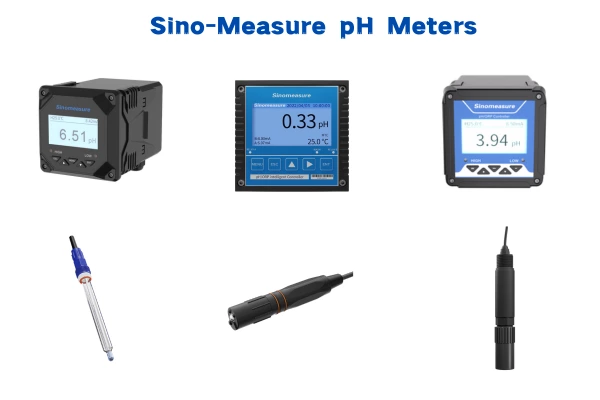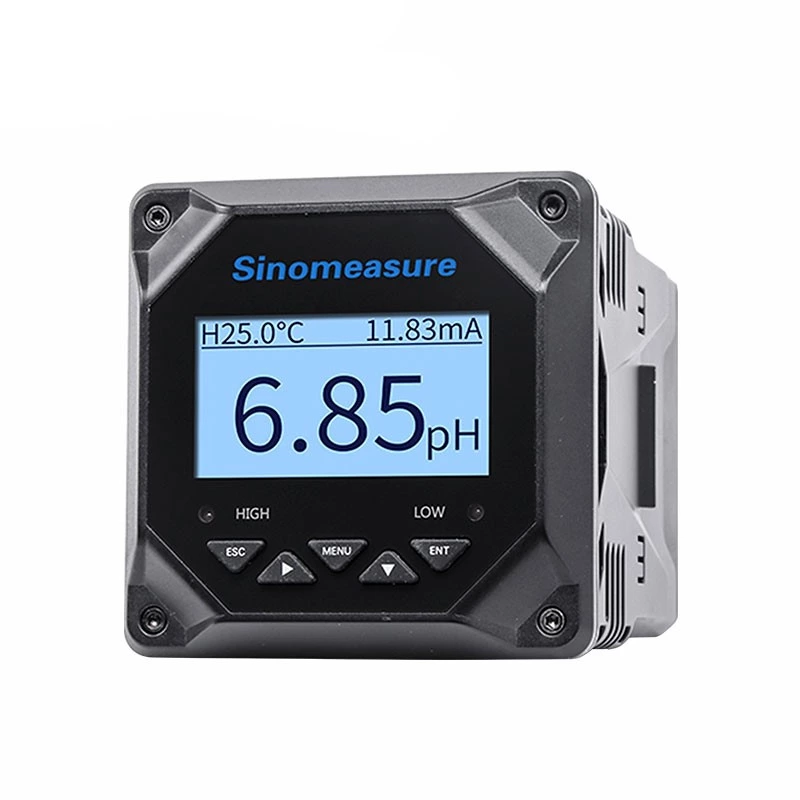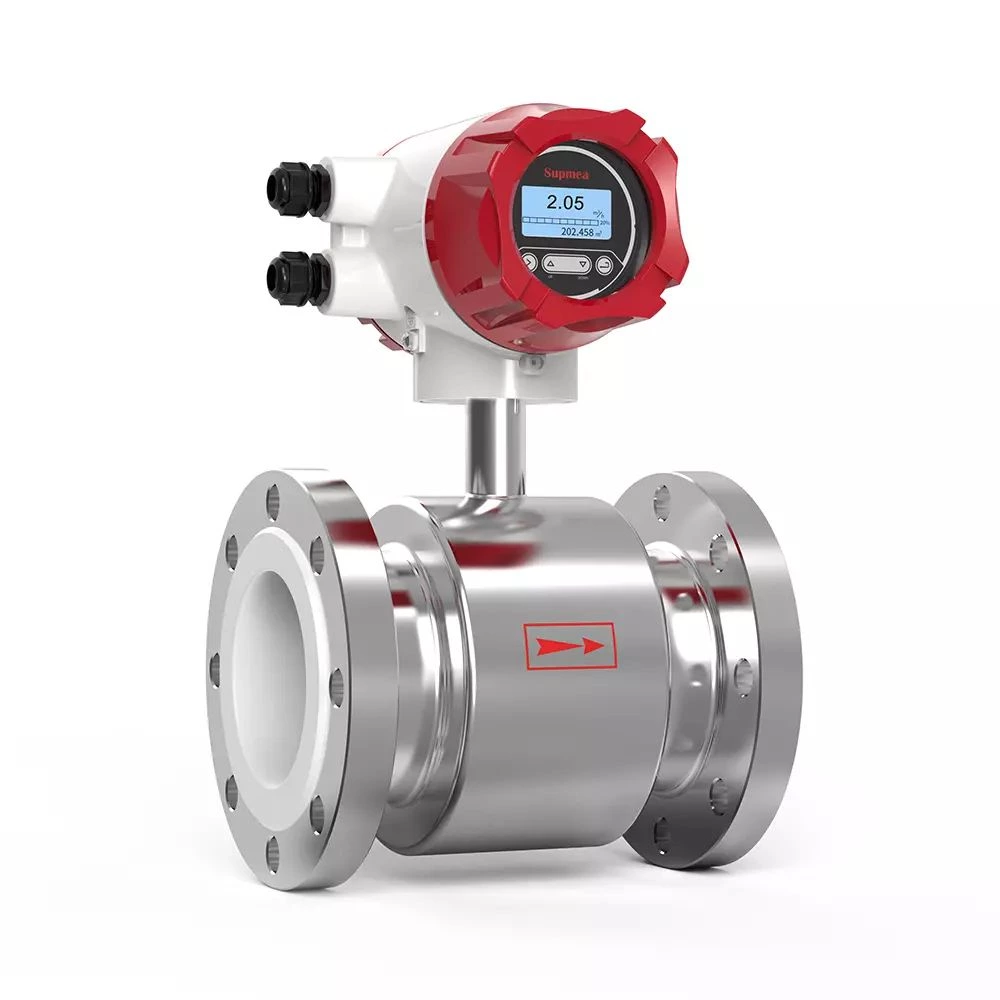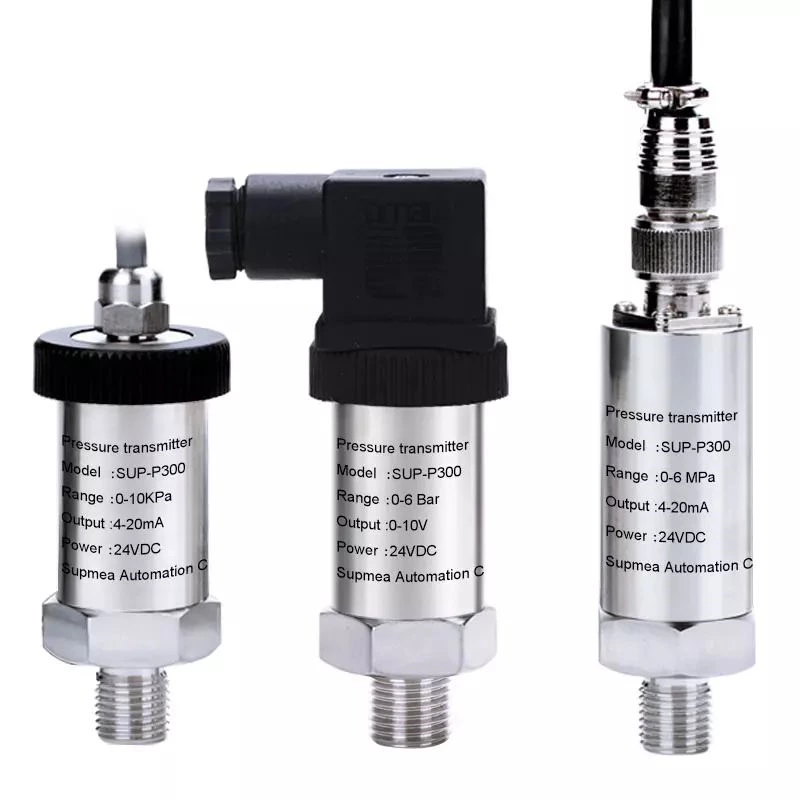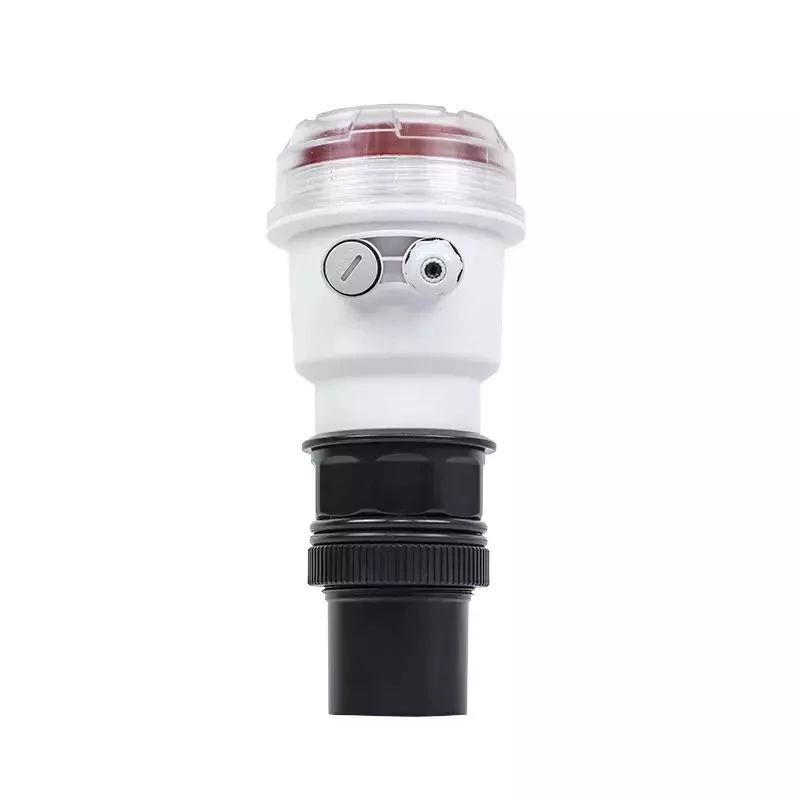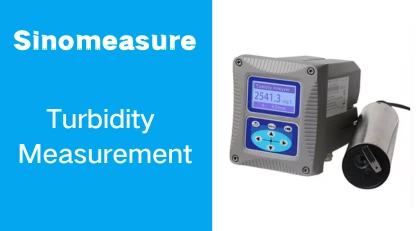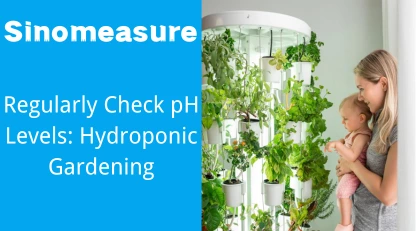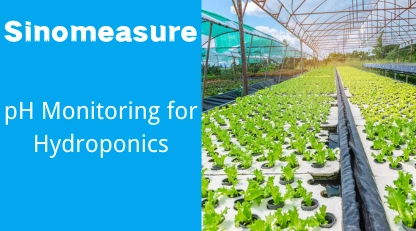Introduction
Welcome to the world of hydroponics, where gardeners cultivate plants without soil, providing them with precisely balanced nutrient solutions. Achieving optimum growth and yields in hydroponic systems depend on maintaining the correct pH levels. In this informative article, we will explore the ins and outs of pH meters and their crucial role in hydroponics. From understanding pH basics to utilizing pH meters effectively, we will guide you through this exciting journey.
What Is A pH Meter?
A pH meter is a sophisticated electronic device designed to measure the acidity or alkalinity of a liquid. pH stands for "power of hydrogen," and it quantifies the concentration of hydrogen ions in a solution. pH is measured on a scale ranging from 0 to 14, where 0 is highly acidic, 7 is neutral, and 14 is highly alkaline. pH meters consist of a probe, which is a glass electrode that detects changes in hydrogen ion concentration, and a digital display that shows the pH value.
How Does A pH Meter Work?
A pH meter operates based on the principle of ion-selective measurement. The pH probe contains a special glass membrane with a thin layer of hydrated gel. This gel is selectively permeable to hydrogen ions, allowing them to pass through and create an electrical potential. When the probe is immersed in a liquid, hydrogen ions from the solution penetrate the gel, generating a voltage that the pH meter converts into a pH reading.
The Importance Of pH In Hydroponics
Maintaining the correct pH is essential in hydroponics because it directly influences nutrient availability to plants. Different nutrients are absorbed optimally at specific pH levels. In hydroponic systems, nutrient solutions are carefully formulated to meet the plants' needs. If the pH deviates from the optimal range, nutrient uptake can be compromised, leading to nutrient deficiencies or toxicities, stunting growth and reducing yields.
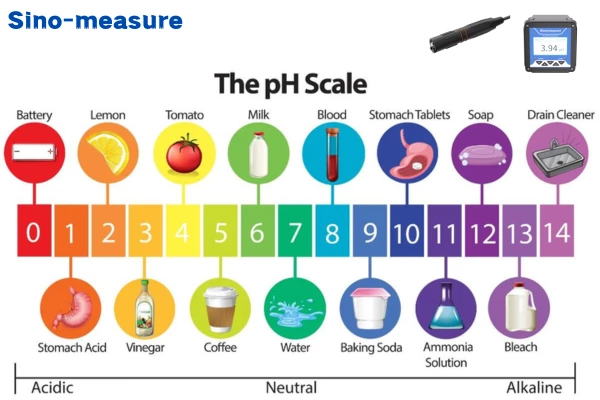
Understanding Optimal pH Levels
The optimal pH range for hydroponic cultivation generally falls between 5.5 and 6.5. However, specific plants may have slightly different preferences. For instance, some acid-loving plants, such as blueberries, prefer a slightly lower pH, while others like lettuce thrive in a slightly higher pH. It is crucial to research the preferred pH range for the specific plants you are growing.
Importance Of Regular pH Monitoring
In hydroponic systems, the nutrient solution is continuously circulated, making pH levels prone to fluctuations. Factors such as nutrient uptake, evaporation, and pH drift can affect the pH of the solution. Regular pH monitoring is essential to identify any deviations from the target range promptly. This allows growers to make necessary adjustments to maintain optimal conditions for plant growth.
The Role Of pH Buffers
pH buffers are solutions with known and stable pH values used to calibrate pH meters. These solutions provide reference points for the meter, ensuring accurate and reliable pH readings. Calibration should be performed regularly to keep the pH meter functioning correctly. Most pH meters have automatic calibration features, simplifying the process for users.
How To Use A pH Meter In Hydroponics?
Using a pH meter in hydroponics is straightforward. Follow these steps for accurate pH measurement:
- Calibration: Begin by calibrating the pH meter using pH 7 and pH 4 or pH 10 buffers, depending on the model. Follow the manufacturer's instructions for calibration.
- Sample Collection: Take a small sample of the nutrient solution from your hydroponic system. Ensure the sample is free from debris and air bubbles, as they can affect the reading.
- Submersion: Immerse the pH probe into the sample solution. Allow a few moments for the reading to stabilize.
- Reading: Read the pH value displayed on the meter. Take note of any fluctuations or deviations from the target pH.
- Adjustment: If the pH reading is outside the optimal range, make the necessary adjustments to bring it back to the desired level. This can be done using pH-up or pH-down solutions.
- Rinse: After use, rinse the pH probe with distilled water to remove any residue and prevent contamination.
The Benefits Of Accurate pH Measurement
Accurate pH measurement in hydroponics offers several benefits:
- Optimal Nutrient Uptake: Maintaining the correct pH ensures that plants can access essential nutrients efficiently, promoting healthy growth.
- Disease Prevention: Proper pH levels contribute to a robust and disease-resistant plant.
- Improved Yields: By providing the ideal pH conditions, hydroponic gardeners can achieve higher yields and better quality produce.
- Resource Efficiency: Accurate pH management prevents nutrient wastage and saves resources.
- pH Troubleshooting: Monitoring pH allows growers to identify and address issues promptly, preventing potential problems.
Common pH Meter Issues And Troubleshooting
Even with proper care, pH meters may encounter some issues. Here are some common problems and troubleshooting tips:
- Calibration Failure: If the pH meter fails to calibrate, double-check that you are using fresh calibration solutions. If the problem persists, clean the probe and try again.
- Erratic Readings: Fluctuating or inconsistent readings may indicate a dirty or damaged probe. Clean or replace the probe to resolve the issue.
- Slow Response: If the pH meter responds slowly or takes a long time to stabilize, ensure the probe is properly hydrated and calibrated.
- Electrode Drift: Electrode drift occurs when the pH reading slowly changes over time. Recalibrate the meter and replace the probe if the problem persists.
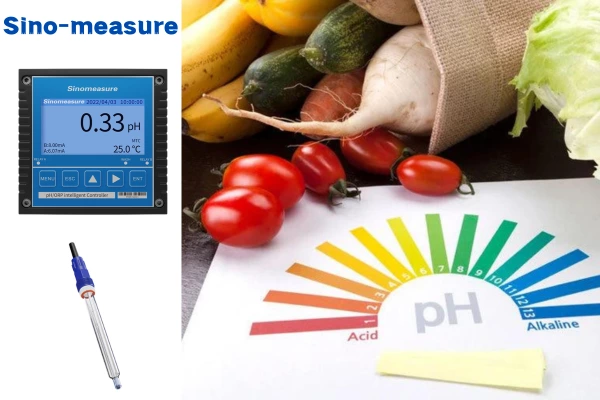
Sino-Measure pH Meters
When it comes to hydroponic gardening, maintaining the right pH levels is crucial for the success of your plants. To achieve accurate pH measurements, you need a reliable pH meter, and one popular option in the market is the Sino-Measure pH meter. In this comprehensive review, we will delve into the features, performance, and benefits of using Sino-Measure pH meters in the context of hydroponics.
Introducing Sino-Measure pH Meters
Sino-Measure is a renowned brand known for producing high-quality and precision measuring instruments. Their pH meters are designed to cater to the specific needs of hydroponic gardeners, providing them with an efficient tool for monitoring and adjusting pH levels.
Key Features of Sino-Measure pH Meters
- Accuracy: Sino-Measure pH meters are engineered for accuracy, ensuring that you get precise pH readings for your hydroponic solutions. This precision allows for better nutrient uptake by plants, leading to healthier growth.
- Automatic Temperature Compensation (ATC): Temperature can significantly affect pH measurements. Sino-Measure pH meters come with ATC functionality, which compensates for temperature variations, providing more reliable readings under different conditions.
- Easy Calibration: Calibration is a critical aspect of pH meters. Sino-Measure makes calibration a breeze with simple, step-by-step instructions that even beginners can follow effortlessly.
- Long Battery Life: Sino-Measure pH meters are designed with energy efficiency in mind, ensuring that the battery life lasts for extended periods, reducing the need for frequent replacements.
- Compact and Portable: These pH meters are compact and lightweight, making them easy to carry around your hydroponic garden. Their portable design allows you to take pH measurements at various points in your system.
- Backlit LCD Display: The meters feature a backlit LCD display, making it convenient to read pH values, even in low-light conditions or indoors.
Performance and Reliability
Sino-Measure pH meters have earned a reputation for their exceptional performance and reliability. With their accurate readings, hydroponic gardeners can fine-tune nutrient solutions precisely, creating an optimal environment for plant growth. The ATC function ensures that temperature fluctuations do not compromise the accuracy of the pH measurements, resulting in consistent and dependable results.
The pH meters' ease of calibration is particularly beneficial for beginners who may not have prior experience with pH measurement devices. The straightforward calibration process ensures that users can start using the meter quickly and with confidence.
Benefits for Hydroponic Gardeners
Using Sino-Measure pH meters offers several advantages for hydroponic gardeners:
- Better Crop Health: Accurate pH measurements lead to healthier and more vigorous plants. By providing the right pH conditions, Sino-Measure pH meters contribute to improved crop health and resistance to diseases.
- Enhanced Nutrient Uptake: When plants receive nutrients at the appropriate pH levels, they can absorb them more efficiently, optimizing nutrient uptake and utilization.
- Time and Cost Savings: With reliable pH readings, gardeners can make precise adjustments to their nutrient solutions, reducing wastage of both nutrients and time.
- Increased Yield: The combination of accurate pH measurement and optimal nutrient delivery translates to higher yields and better-quality produce.
FAQs
Can I use a regular pH meter for hydroponics?
Yes, you can use a regular pH meter for hydroponics, but it is advisable to use a pH meter specifically designed for hydroponic applications. These meters often have features tailored to the unique needs of hydroponic gardening.
How often should I calibrate my pH meter?
For most hydroponic systems, calibrating the pH meter once a week is sufficient. However, if you use the meter frequently or notice erratic readings, calibrate it more often.
What should I do if my pH meter's readings are consistently off?
If your pH meter consistently gives inaccurate readings, consider replacing the pH probe. Over time, pH probes can become less accurate, affecting the reliability of measurements.
Can I reuse pH calibration solutions?
pH calibration solutions have a limited shelf life once opened. It is best to use fresh solutions or follow the manufacturer's recommendations regarding reuse.
Is it necessary to adjust pH every day in hydroponics?
The need for pH adjustment depends on how stable your hydroponic system is. Some systems may require daily adjustments, while others may need less frequent interventions. Regular pH monitoring will guide you in determining the frequency of adjustments.

